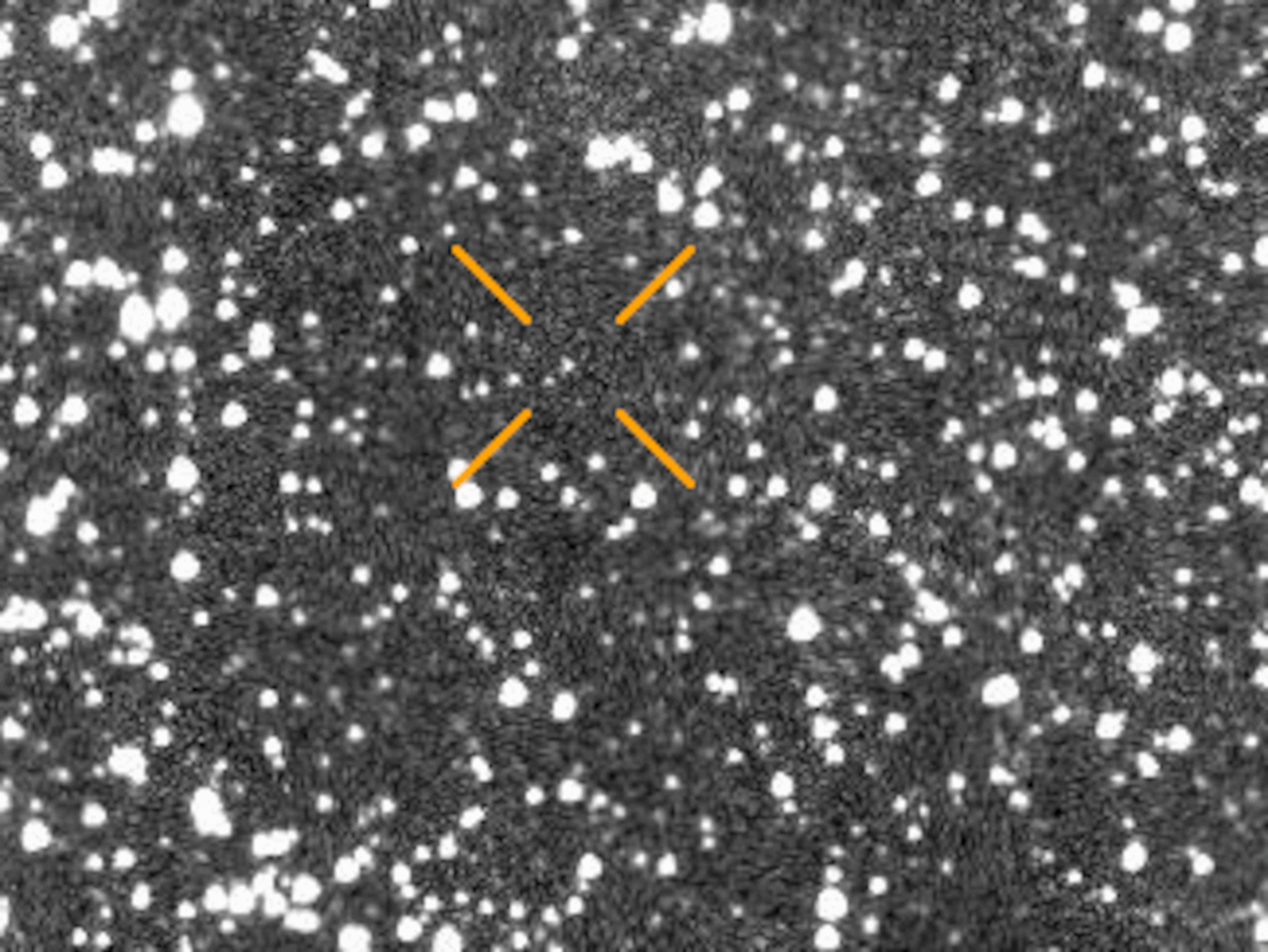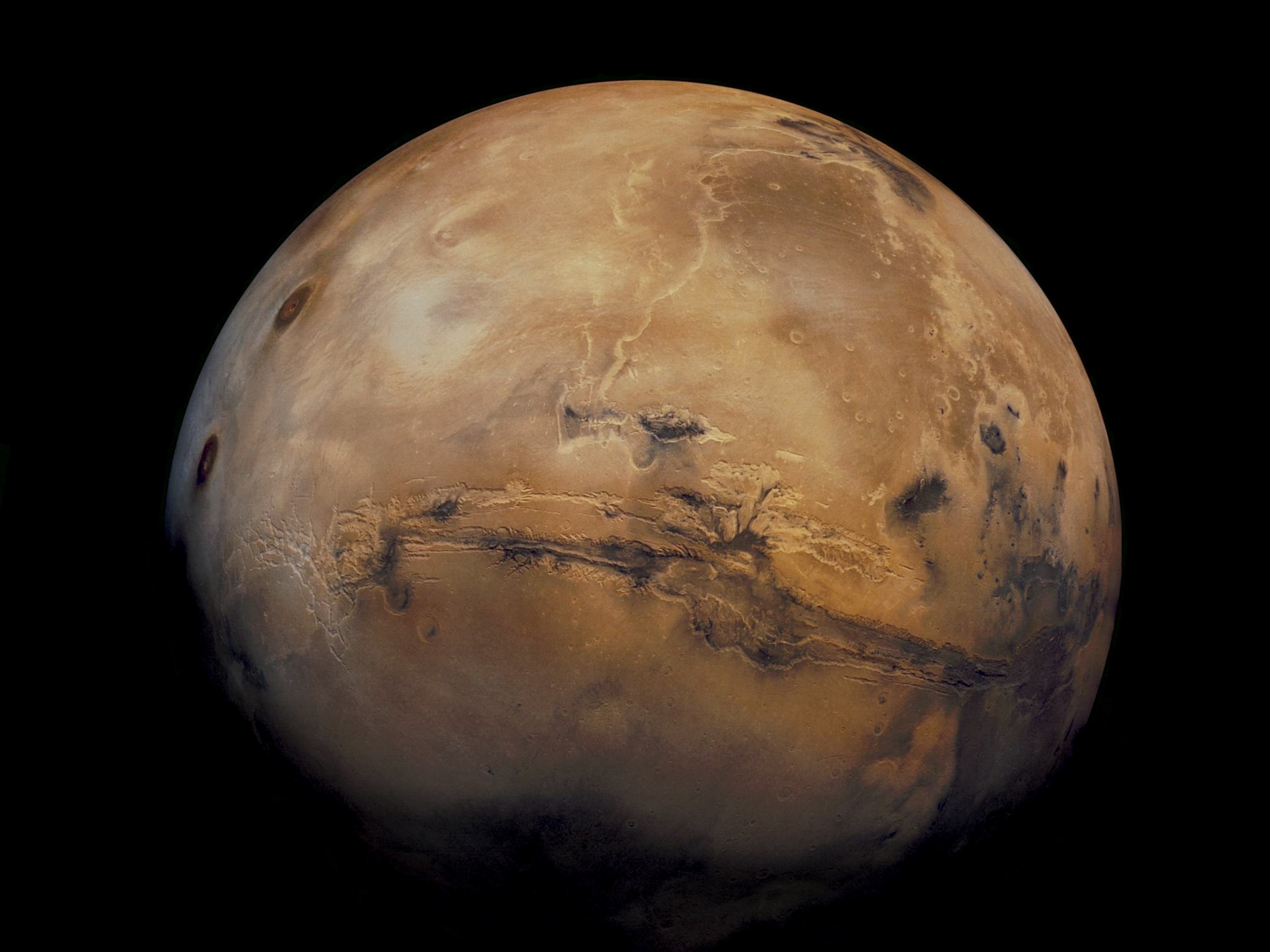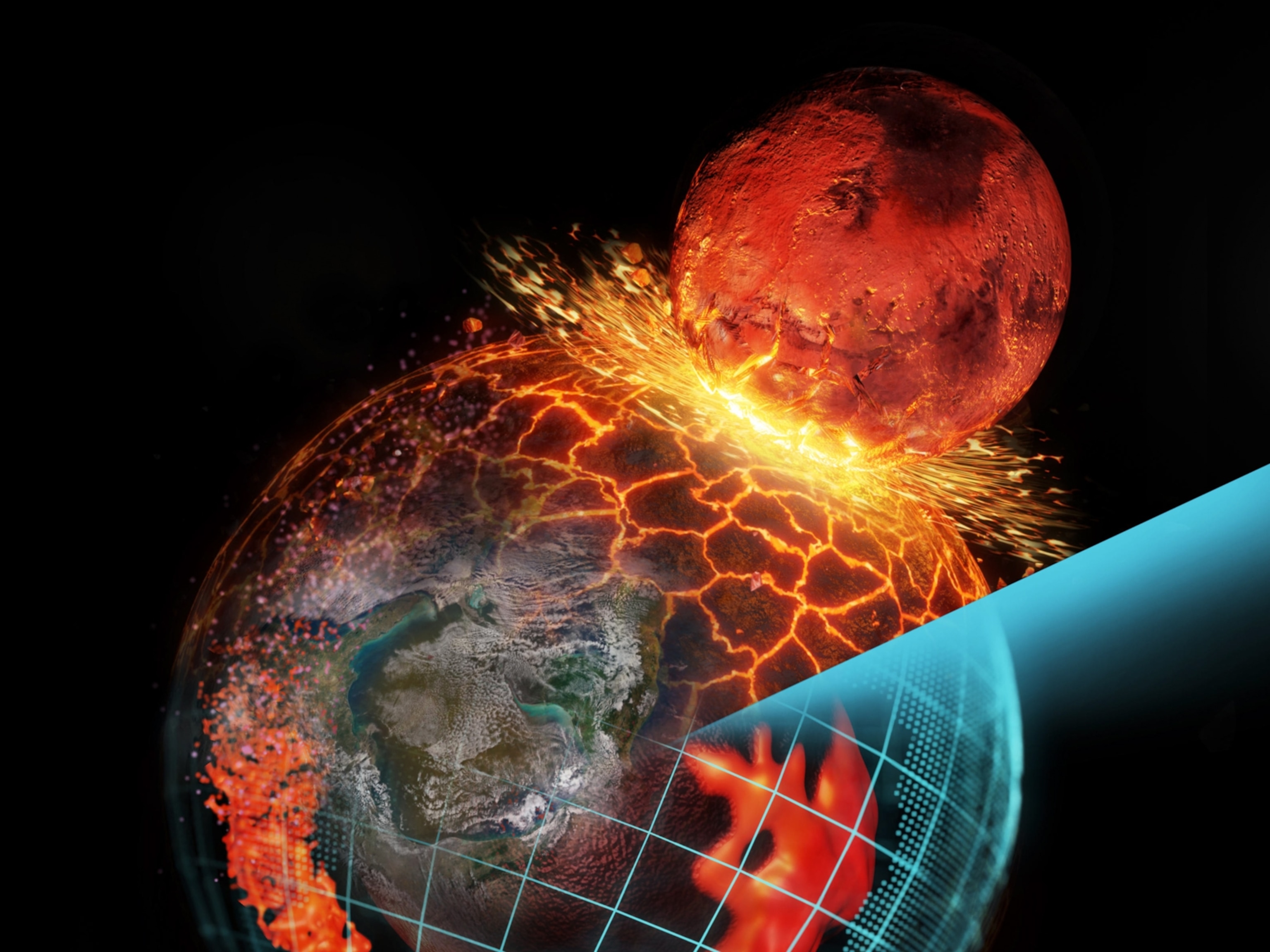
New Planet Found in Our Solar System?
Odd orbits of remote objects hint at unseen world, new calculations suggest.
An as yet undiscovered planet might be orbiting at the dark fringes of the solar system, according to new research.
Too far out to be easily spotted by telescopes, the potential unseen planet appears to be making its presence felt by disturbing the orbits of so-called Kuiper belt objects, said Rodney Gomes, an astronomer at the National Observatory of Brazil in Rio de Janeiro.
Kuiper belt objects are small icy bodies—including some dwarf planets—that lie beyond the orbit of Neptune.
Once considered the ninth planet in our system, the dwarf planet Pluto, for example, is one of the largest Kuiper belt objects, at about 1,400 miles (2,300 kilometers) wide. Dozens of the other objects are hundreds of miles across, and more are being discovered every year.
(See "Three New 'Plutos'? Possible Dwarf Planets Found.")
What's intriguing, Gomes said, is that, according to his new calculations, about a half dozen Kuiper belt objects—including the remote body known as Sedna—are in strange orbits compared to where they should be, based on existing solar system models. (Related: "Pluto Neighbor Gets Downsized.")
The objects' unexpected orbits have a few possible explanations, said Gomes, who presented his findings Tuesday at a meeting of the American Astronomical Society in Timberline Lodge, Oregon.
"But I think the easiest one is a planetary-mass solar companion"—a planet that orbits very far out from the sun but that's massive enough to be having gravitational effects on Kuiper belt objects.
Mystery Planet a Captured Rogue?
For the new work, Gomes analyzed the orbits of 92 Kuiper belt objects, then compared his results to computer models of how the bodies should be distributed, with and without an additional planet.
If there's no distant world, Gomes concludes, the models don't produce the highly elongated orbits we see for six of the objects.
How big exactly the planetary body might be isn't clear, but there are a lot of possibilities, Gomes added.
Based on his calculations, Gomes thinks a Neptune-size world, about four times bigger than Earth, orbiting 140 billion miles (225 billion kilometers) away from the sun—about 1,500 times farther than Earth—would do the trick.
But so would a Mars-size object—roughly half Earth's size—in a highly elongated orbit that would occasionally bring the body sweeping to within 5 billion miles (8 billion kilometers) of the sun.
Gomes speculates that the mystery object could be a rogue planet that was kicked out of its own star system and later captured by the sun's gravity. (See "'Nomad' Planets More Common Than Thought, May Orbit Black Holes.")
Or the putative planet could have formed closer to our sun, only to be cast outward by gravitational encounters with other planets.
However, actually finding such a world would be a challenge.
To begin with, the planet might be pretty dim. Also, Gomes's simulations don't give astronomers any clue as to where to point their telescopes—"it can be anywhere," he said.
No Smoking Gun
Other astronomers are intrigued but say they'll want a lot more proof before they're willing to agree that the solar system—again—has nine planets. (Also see "Record Nine-Planet Star System Discovered?")
"Obviously, finding another planet in the solar system is a big deal," said Rory Barnes, an astronomer at the University of Washington. But, he added, "I don't think he really has any evidence that suggests it is out there."
Instead, he added, Gomes "has laid out a way to determine how such a planet could sculpt parts of our solar system. So while, yes, the evidence doesn't exist yet, I thought the bigger point was that he showed us that there are ways to find that evidence."
Douglas Hamilton, an astronomer from the University of Maryland, agrees that the new findings are far from definitive.
"What he showed in his probability arguments is that it's slightly more likely. He doesn't have a smoking gun yet."
And Hal Levison, an astronomer at the Southwest Research Institute in Boulder, Colorado, says he isn't sure what to make of Gomes's finding.
"It seems surprising to me that a [solar] companion as small as Neptune could have the effect he sees," Levison said.
But "I know Rodney, and I'm sure he did the calculations right."




